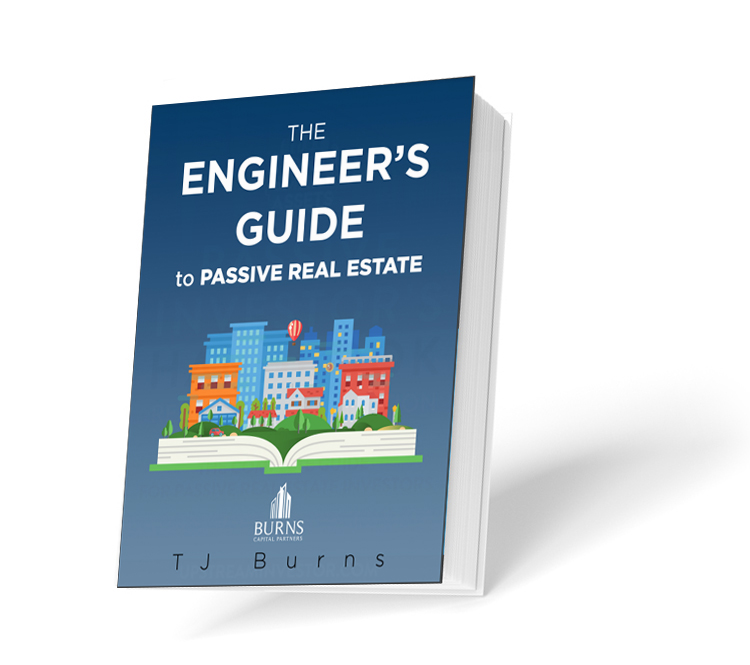“Do you want to be an active investor, or a passive investor?”
That’s the first question I ask prospective real estate investors.
You see, social media paints real estate investing with a bright rosy brush. There are different flavors of the pitch, but it always involves these things:
-Lots of money
-Time freedom
-Low Stress (smiles and happiness)
I’m a huge fan of real estate investing. But anyone who tells you it is easy, instant, and stress-free is lying or ill-informed.
Make no mistake, a well-run real estate business is a job. Of course, there are huge benefits to building your own business, and it is worth it in the long run.
But to do your own deals, you’re going to have to spend a lot of time, money, and effort, or take on a lot of risk & stress.
And for most, the ultimate goal is passive income- not another job.
The term passive income covers a very broad stroke of potential money-making ventures. Some are very passive, meaning that you’re involvement is less than an hour per month. I’d call these passive investments.
Others need a lot of work and a business that you must build before they become passive. I’d call these active investments.
My Experience
I’ve tried a little bit of everything out of curiosity. I’ve house hacked; I’ve built new construction; I’ve bought out of state and in my neighborhood. I’ve managed short term rentals and long term rentals. I’ve created funds that invest in larger deals, and I’ve raised $2.5M from other investors. I’ve also invested passively in over a dozen projects.
My favorite: Passive Investing in Funds & Syndications
Active Vs. Passive Investing
Active:
Active Real Estate Investing means that you are buying,
renovating, leasing, and managing rental real estate.
If done right, it is one of the best ways to build wealth. Doing so requires significant time, or experience to leverage other people’s time.
Make no mistake, when you invest actively, you’re running a business. The performance is entirely dependent on how well you run the business. This includes the quality of your deal pipeline, negotiation skills, lender relationships, property management, renovations, and selling ability.
The upside is entirely yours. But, so is the downside.
You’re liable for the properties that you own, both in lawsuits and the debt that you sign to secure the loan.
Passive:
Passive Investing means that you own part of an income-producing investment, without the responsibility of doing the work.
You contribute capital as equity, and you expect to generate a return on that in the form of cash flow or equity growth.
It’s worth noting that there is still work involved with becoming a good passive investor.
You should still understand the fundamentals associated with real estate before investing. You need to do your due diligence on the deal sponsor, the market, and the asset itself.
Once you make your investment, the work done by a passive investor is pretty much over; from there, your involvement will be reviewing periodic reports and asking occasional questions to the deal sponsor.
Which is right for you?
To me, the real question you should ask yourself is:
What is the best use of my time, to accumulate the most wealth?
For starters, there are barriers to being a passive investor in that you need to have capital, at least $25k-$50k per investment.
You also need to have access to operators who will partner with you. Syndicators may require you to be accredited or at least sophisticated by SEC standards.
If you’re the average American, who according to the Bureau of Labor Statistics, makes $54k/year in 2022, then the best use of your time is to actively invest.
Passive investing makes a lot of sense for certain individuals. High-income earning professionals are well suited for this; Lawyers, doctors, engineers, executives, and other jobs which pay well into the 6 (and sometimes 7) figures are all common limited partners in real estate syndications.
The reason is two-fold:
If your goal is to grow wealth, then it makes the most sense to spend your time where you earn the most money. For these professionals, that means growing their careers. Not in picking up a second job.
These professionals are already short on time because of the demanding nature of their careers. Diverting time away from their career growth to build a well-oiled real estate business isn’t worth it.
There are plenty of high-income earning professionals who have built great real estate businesses on the side. I’m sure that most (if not all) would tell you that it involved a lot of time and effort. For me, passive investing was a perfect match in the early stages of my career.

